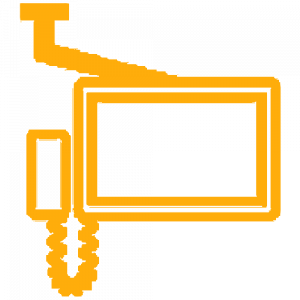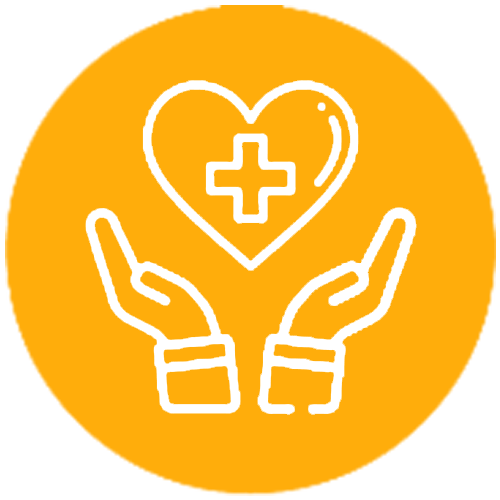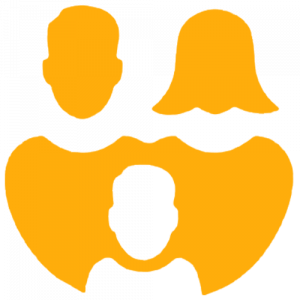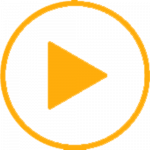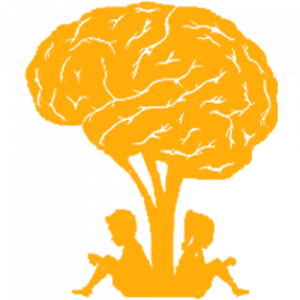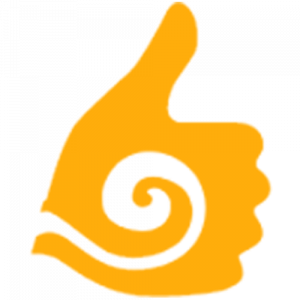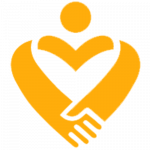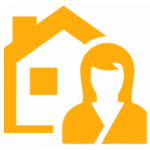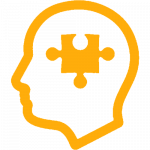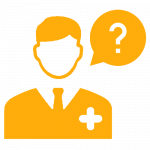Happy Kids
Education is the primary right of all children. More than 10% of school-going children in India have various types of Learning Disabilities (LD). Many learning disabilities persist undetected because of lack of awareness about the prevalence of LD, confusing guidance on the provision of service for such children in schools and the medium of instruction.
Learning style is unique to each individual, and it differs from student to student. However, some students cannot learn efficiently due to specific malfunction in the education method involving listening, thinking, perceiving, memory and expression. Such difficulties are known as Specific Learning Disabilities. But these conditions are not visible from outside.
Parents must understand that this is not the problems of the child’s disinterest & distraction. The fact is there is some minor variation in the language & knowledge synthesizing ability in the brain. We appeal to you not to criticize your child for NO FAULT OF HIM. There are no medicines to cure this. Only specific learning methods can solve the problem.
As a result, students suffering from these conditions are termed as lazy, irresponsive, disobedient, not fit to be in school, etc., and are subjected to a lot of criticisms in schools. They soon become drop out of the schools or the management would ask the parents to take them to other schools.
A student needs to receive education in a way that he/ she is receptive to. Many teachers and parents do not have immense knowledge about these conditions, and many of them are not aware of the techniques of early identification of these conditions and different teaching methods. Many parents put them into special classes or send them to tuition centres to shine, which would worsen their learning issues.
Instead, children would become sad, burdened, confused and irritable, they may consider themselves as failures, which would lead to depression, suicidal ideation and social phobia.
Athma’s Happy Kids is a centre for learning disabilities started in 2015, where children will learn adaptive methodologies and will have proper training that would help them to deal with their learning problems effectively and will become active learners.
This is the only centre available in Tiruchirappalli district.
WHAT ARE LEARNING DISABILITIES (LDs)?
Learning disabilities are neurologically-based processing problems. These processing problems can interfere with learning necessary skills such as reading, writing and mathematics. They can also interfere with higher-level skills such as organizational, time planning, abstract reasoning, long or short term memory and attention. Learning disabilities should not be confused by learning problems caused by physical – visual, auditory and motor handicaps.
TYPES OF LEARNING DISABILITIES
Learning Disabilities (LD) usually settles into four broad divisions:
Spoken Language – listening and speaking
Written Language – reading, writing and spelling
Arithmetic – calculation and concepts
Reasoning – organization and integration of ideas and thoughts
LD manifests in three ways, namely, developmental speech and language disorders, academic skill disorders and coordination disorders. It is an “umbrella” term describing dyslexia, dysgraphia etc.
SPECIFIC LEARNING DISABILITIES
“Specific Learning Disability (SLD) means a disorder in one or more of the psychological process involved in understanding or in using languages, spoken or written, which may manifest itself in an imperfect ability to listen, think, speak, read, write, spell or to do mathematical calculations.
TYPES OF SPECIFIC LEARNING DISABILITIES (SLDS)
An individual with dyslexia has average to above-average intelligence but has deficits in visual, auditory or motor process which interfere with reading and writing comprehension. It is a condition that affects reading and language-based processing skills. The individual may also have difficulties with learning to translate printed words to spoken words with ease.
Dyscalculia
Dyscalculia affects a person’s ability to understand numbers and learn mathematical facts. The individual may also have poor comprehension of mathematical symbols, may struggle with memorizing and organizing numbers, have difficulty telling time, or have trouble with counting. Some people may also reverse numbers.
Dysgraphia is a specific type of learning disability that affects a person’s handwriting ability and fine motor skills. Problems may include illegible handwriting, inconsistent spacing, poor spatial planning on paper, poor spelling, and difficulty composing writing as well as thinking and writing at the same time.
Auditory Processing Disorder (APD)
Also known as Central Auditory Processing Disorder, this condition adversely affects how sound that travels unimpeded through the ear is processed or interpreted by the brain. Individuals with APD do not recognize subtle differences between sounds in words, even when the sounds are loud and clear enough to be heard. They can also find it difficult to tell where sounds are coming from, to make sense of the order of sounds, or to block out competing for background noises.
This disorder affects the understanding of information that a person can see, or the ability to draw or copy. A characteristic seen in people with learning disabilities such as Dysgraphia or Non-verbal LD includes missing subtle differences in shapes or printed letters, losing place frequently, struggles with cutting, holding pencil too tightly, or poor eye/hand coordination.
Non-Verbal Learning Disabilities
This is a disorder which is usually characterized by a significant discrepancy between higher verbal skills and weaker motor, visual-spatial and social skills. Typically, an individual with NLD (or NVLD) has trouble interpreting nonverbal cues like facial expressions or body language and may have poor coordination.
Problems faced by students with SLDs
Attention and concentration difficulties
Socialization difficulties
Low frustration tolerance
Poor impulse control
Poor speech and language development
Hyperactivity.
Due to these factors, it becomes essential to recognize these problems in the students at an early stage. Parents and teachers should be very much aware of the existence of these problems. Teachers should consider the possibility of the life of these disorders in a student when he/she demonstrates difficulties in certain aspects of the learning or when they exhibit behavioural problems. Parents also should be keenly observant of any change in their child’s social behaviour and academic performance. If left undetected, these small problems will magnify and will compromise the future performance of the students.
ASSESSMENTS
HAPPY KIDS provides the services of both screening and assessment of children of all age groups for IQ and LD.
- Early intervention helps the child in developing proper skills to overcome and face problems due to LD.
- Getting concession from different educational boards and have a stress free Learning.
1. SPEECH AND LANGUAGE EVALUATION
1. Speech and Language Development:
2. Oral Peripheral Mechanism:
3. Vegetative Skills:
4. Speech Evaluation:
5. Linguistic skills:
6. Expression
2. SPECIAL EDUCATION
1. School History
2. Cognitive Skills
3. Concept Format
4. Reading Skills
5. Writing Skills
6. Story telling
7. Social Interaction
3. OCCUPATIONAL THERAPY EVALUATION OF SENSORY INTEGRATIVE ABILITIES
4. OCCUATIONAL THERAPHY EVALUATION FOR CEREBRAL PLASY
TRAINING PROGRAMS:
Teaching children with Learning Difficulties / Disabilities needs a different approach and technique, this is not possible in the regular school .To bridge this gap we have training programs for
Special Educators
Mainstream school Teachers
Parents
This course helps to
Understand what the children go through.
Help the child to overcome the difficulties.
Simple easy techniques of different types of learning.
How to provide and accommodate the child in class room and at home.
Different types of learning difficulties
RESOURCE CENTRE
HAPPY KIDS resource centre conducts remedial classes for all age group children .One hour classes per day based on the child’s level of difficulties and convenience, children can choose a program of 2/3/5 sessions per week. We have after school classes and weekend classes to accommodate school going and out of station children.
- One on one classes
- Multisensory techniques
- Diagnostic and Prescriptive
- Direct Instruction
- Phonological Knowledge
- Sequential, Incremental, and Cumulative
- Continuous Feedback and Positive Reinforcement
SPEAK SMART
- What is the correct syntax for this sentence?
- Am I speaking correct English?
- How do I address people in a particular situation?
- Not confident of speaking in English?
If these are your frequent doubts/queries. Then this program is for you. 30 hours program to improve your language (English) and communication skills.
STUDY SKILLS
This a short term program of 15 days which helps in enhancing study skills and memory techniques for all age group of students. This program helps in
Organizing study habits.
Developing smart study material.
Smart ways to study.
Time management.
Improving memory.
Examination fear.
How to crack different types of questions etc.
The aim of this program is to excel, develop skills and have stress free education.
AWARENESS
HAPPY KIDS is committed to create awareness, as the prevalence of Learning Disabilities is present in all walks of life and in all age groups.
Talks for Clubs/Corporate.
Events/Activities.






